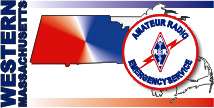
Amateur Radio is a great avocation! It challenges us to improve ourselves in many ways. Where else could we learn and manipulate how the physical universe affects our radio performance through ionospheric propagation on different bands? We communicate with each other on opposite ends of the globe through various evolving operating modes, via orbiting satellites and even by bouncing signals off the moon. We improve our operating skills while enjoying contesting with other stations. Whether we realize it or not, all this expands our knowledge and improves our effectiveness … as COMMUNICATORS.
We personally gain much from Amateur Radio, and it offers us an opportunity to return the favor …. to PAY IT FORWARD … by assisting our communities in times of need. ARES, the Amateur Radio Emergency Service, is an ARRL program which does exactly that. ARES trains us to provide a communications conduit for our communities and agencies in emergency situations but also for local events that could benefit from effective communications.
The key word here is effective! We obviously must be effective in our technologies and radio skills; but it is critically important to effectively interface with those we serve. Our Post – 9/11 environment has driven government and healthcare organizations to adopt strict operational protocols such as the Incident Command System (ICS) and National Incident Management System (NIMS). Credentialing and Certification requirements are part of these protocols, and the ARRL has recently revamped ARES to comply with this, working with many groups such as the American Red Cross and FEMA to ensure ARES meets their current needs.
Training of ARES participants is a major factor required of us by external agencies, and it varies with the level of involvement the ARES member desires to participate on. The basic training involves locally provided sessions perhaps as part of a club meeting or event. Those who wish to get more involved will find that a few online courses will suffice (ICS, NIMS and ARRL introductory courses) to satisfy current ARES requirements. (Working onsite with certain organizations may require completing additional training required by that agency.)
ARES Section leadership officials (SEC, ASEC, DEC, EC) have a few additional online courses required. These are mandatory in order to participate in leadership positions. A 1-year period to complete relevant courses is allowed. All of us (myself included) will be held to these standards.
Over the past several months, many of you have expressed concerns about the training required for a ‘volunteer position’. I truly understand, but this is not something that is negotiable. Consider an example … would you want any volunteer firefighters or ambulance personnel without the training required by their departments responding to your needs in an emergency? I believe ARES holds a similar position.
It is critical to recognize that it’s not the ARRL imposing training on us …it is a compliance requirement of the organizations and agencies ARES serves.
Thanks to all for your support as we improve WMA ARES … and for paying it FORWARD as we move the organization in the same direction.
Vy 73
Bob Meneguzzo – K1YO
Section Emergency Coordinator WMA ARES Section

